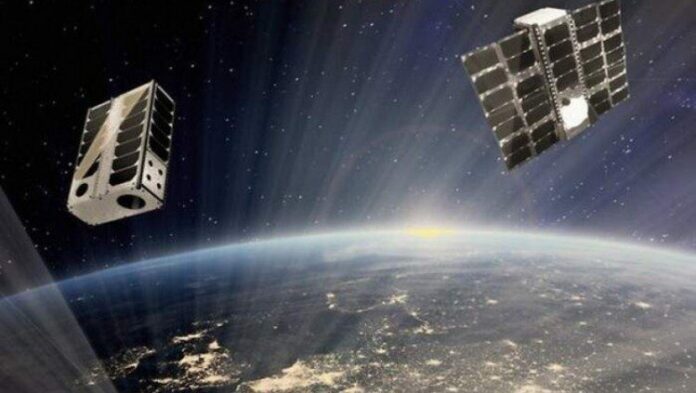The FCC will not authorize two-way, high-powered terrestrial mobile use on the 12.2-12.7 GHz band
The Federal Communications Commission (FCC) voted 4-0 this week to preserve parts of the 12 GHz spectrum band for advanced satellite services. The decision means that the Commission will not authorize two-way, high-powered terrestrial mobile use on the 12.2-12.7 GHz band to address intereference concerns.
The vote settles the ongoing dispute between SpaceX’s Starlink and Dish Network; Dish had proposed using spectrum from the 12.2-12.7 GHz band for its cellular service.
Starlink pushed back, citing a significant risk of harmful interference, and even reached out to its users, urging them to contact the FCC: “Today we ask for your support in ending a lobbying campaign that threatens to make Starlink unusable for you and the vast majority of our American customers. … Dish has been attempting to claim new rights to the 12 GHz band, which is the spectrum you currently use to download content with Starlink.”
The satellite company added that technical studies “dating back as far as 2016” support its interference concerns and that Dish has “employed paid lobbyists who are attempting to mislead the FCC with faulty analysis in hopes of obscuring the truth.”
“In 12.2 we are correcting course in response to technical evidence. Based on the studies filed, our engineers have concluded to date that high-powered mobile broadband when deployed throughout the country will interfere with established and emerging satellite services that serve millions of customers and is growing,” said FCC Commissioner Geoffrey Starks. “I would have welcomed a path forward that allowed both services to thrive, but for now, it is time for us to adapt.”
Today, Starlink tweeted a thank you to “the 100K+ Starlink customers who spoke up,” crediting them with inspiring the FCC to vote against Dish’s proposal and protecting satellite Internet users from harmful interference.
According to FCC Chair Jessica Rosenworcel, this week’s vote “ensure[s] the present and future of satellite services in the 12.2-12.7 GHz band. We recognize that millions of people rely on services in this band—and we want to see that continue.”
The FCC is now seeking comment on a proposal to repurpose part of the 12.7-13.25 GHz band to support next-generation wireless services — including 6G — and allow point-to-point fixed links at higher power levels than the current rules allow.

